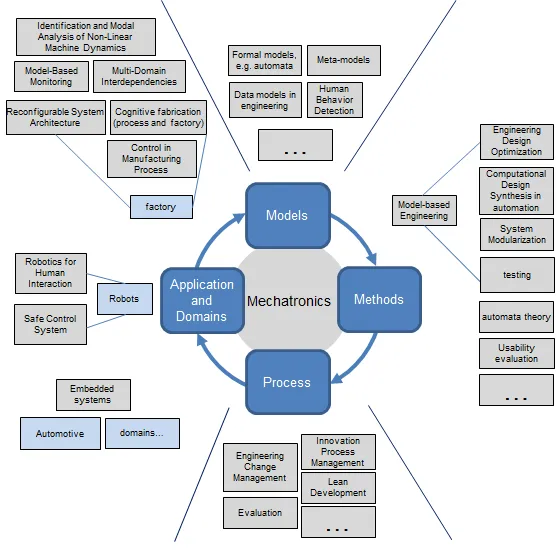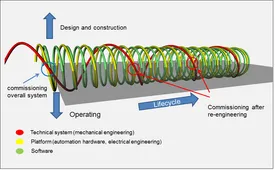Short Profile
The Institute of Automation and Information Systems focuses on the modeling of distributed embedded systems in automation and control regarding dependability and usability, Human Machine Interaction in process engineering and operation.
Structure and Development of the Institute
The Institute was assumed by Professor Vogel-Heuser in july 2009. Due to the re-orientation of the institute because of the change of the leadership in 2009 the institute was renamed AIS (Institute of Automation and Information Systems) in March 2011.
Additionally the chair ran a certification laboratory for fieldbus systems until 2013, i.e. Profinet and Profibus, which allows to keep and develop detailed knowledge about recent bus protocols and specification.
Currently, the group consists of 1 professor and 25 staff members: 17 researchers (one holding a PhD), 4 technicians/software developer, 1 secretary and 1 accountant and 2 trainees (IT specialist for application development).
Positioning and Mission
The advantage of AIS with regard to german and international universities is threefold:
- AIS is embedded in the faculty of TUM School of Engineering and Design - Department of Mechanical Engineering, which provides optimal education and cooperation opportunities for its research (Fig. 1),
- has a strong relation to industrial requirements and is accepted from industry especially in engineering in plant and manufacturing industries as well as from automation device suppliers, which are both known as market leading in Germany and
- its research focus includes process industry as well as factory automation, which is really rare worldwide.
The lab consists of different models and one complex hybrid plant model, which operates with all market leading automation devices (mostly sponsored from industry).
International research groups in this field with comparable laboratory equipment and personnel are only available at the University of Vienna. But this group is more focused on control.

The strategy for the Institute
AIS works on the improvement of the whole life cycle for engineering of products and production lines in hybrid process (special research topics given in fig. 2) using and adapting methods from computers science, e.g. pattern recognition, software engineering. Recently Prof. Vogel-Heuser co-submitted a proposal for an SPP on managed software evolution, because AIS is aware of the different development intervals as well as operation intervals in mechanical engineering, automation and software engineering (Fig. 3).
Prof. Vogel-Heuser is in charge of the smart factory scenario of the cyber physical systems road-map in close cooperation with market-leading companies. The outcome of AIS work is accepted in industry and implemented into products and tools. AIS is member of the Cluster Mechatronic in Bavaria and holds a yearly industry workshop additionally also more fundamental research projects interact via an advisory board from industry with interested companies.


